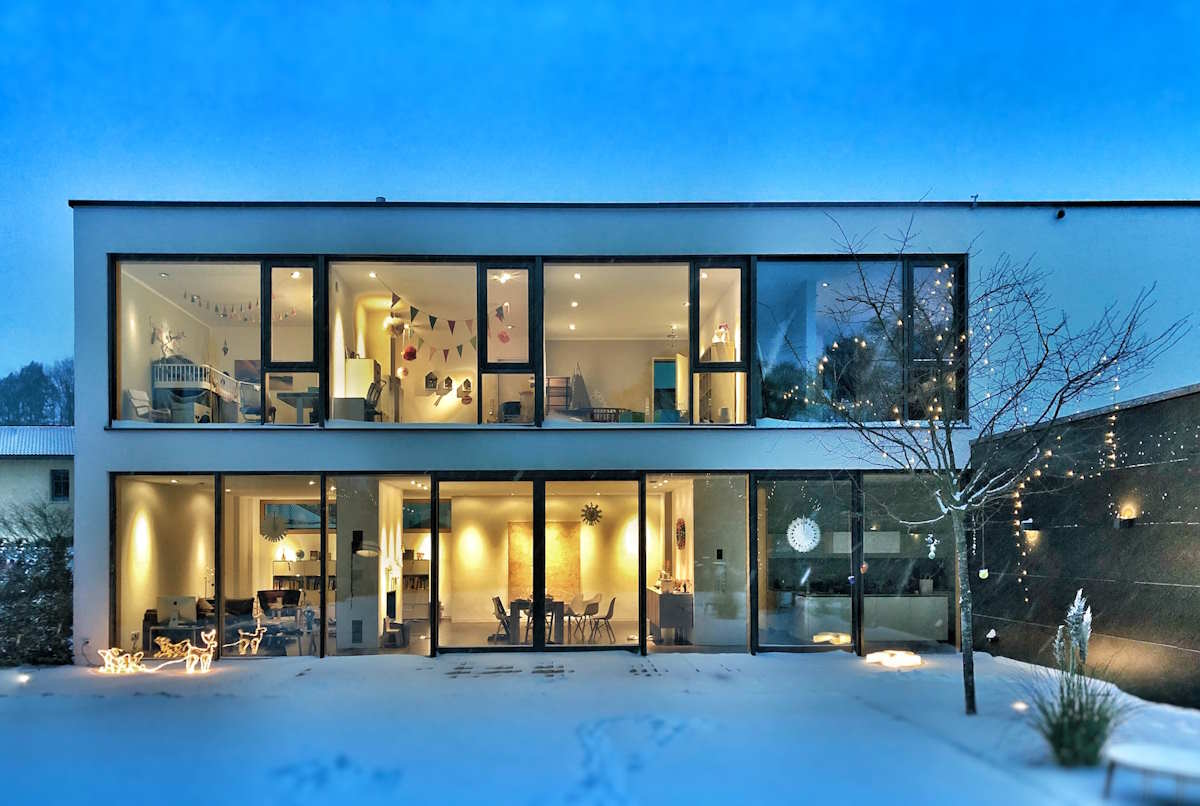The real estate industry is constantly evolving, driven by technological advancements and changing consumer preferences. One of the most significant trends reshaping the landscape of real estate is the emergence of smart homes. Smart homes, equipped with cutting-edge technology and automation systems, are not just a trend; they represent the future of real estate. In this article, we will explore how smart homes are helping users seamlessly synchronize and transfer data between different software applications and devices like smartphones, tablets, and desktop computers.

The Rise of Smart Homes
Smart homes are residences equipped with a network of interconnected devices and systems that enable homeowners to control and monitor various aspects of their home remotely. New communities such as the #1 Master-planned community in the USA, Summerlin Las Vegas , NV, has become a testing ground for smart homes. These systems can include lighting, heating, cooling, security, entertainment, and even appliances. The smart home ecosystem is built upon the Internet of Things (IoT) technology, which connects devices and allows them to communicate with each other.
- Smart Thermostats: Beyond traditional programmable thermostats, smart thermostats like the Google Nest Thermostat and Ecobee SmartThermostat use sensors and AI to learn your heating and cooling preferences. They can adjust temperatures automatically to save energy and provide remote control via smartphone apps.
- Voice Assistants: Voice-activated smart speakers like Amazon Echo and Google Home allow users to control various smart devices with voice commands. These devices can answer questions, play music, set alarms, and even control lights and thermostats.
- Smart Lighting: Smart bulbs and switches, such as Philips Hue and Lutron Caseta, enable users to control the brightness and color of lights remotely. Some can sync with music or change colors based on your preferences.
- Smart Locks: Smart locks, like the August Smart Lock and Schlage Encode, provide keyless entry through smartphones or keypad codes. They also offer features like remote locking and unlocking, guest access control, and integration with home security systems.
- Smart Security Cameras: Advanced security cameras, including Ring Video Doorbell and Arlo Pro, offer high-definition video streaming, motion detection, two-way communication, and cloud storage for recorded footage. Some models even integrate with facial recognition technology.
- Smart Doorbells: Smart doorbells, like the Ring Doorbell and Nest Hello, combine video cameras with doorbells. They allow homeowners to see and speak with visitors remotely through a smartphone app, enhancing home security.
- Smart Home Hubs: Devices like the Samsung SmartThings Hub and Hubitat Elevation act as central controllers for various smart devices, allowing users to create automation routines and control multiple devices from a single interface.
- Smart Appliances: Appliances like refrigerators, ovens, and washing machines are becoming smarter. For instance, some smart fridges can display grocery lists and expiration dates, while smart ovens can be controlled remotely and offer cooking suggestions.
- Smart Sensors: Sensors like motion detectors, water leak sensors, and smoke detectors can send alerts to homeowners’ smartphones in case of unusual activity or emergencies, enhancing home safety.
- Smart Home Energy Monitors: Energy monitoring systems, like Sense and Neurio, provide real-time data on energy consumption. They help users identify energy-saving opportunities and optimize their electricity usage.
Future Prospects
As technology continues to advance, the capabilities of smart homes will expand. Future smart homes may include features like predictive maintenance, healthcare monitoring, and enhanced personalization. Additionally, the development of 5G networks will enable faster and more reliable connections, further enhancing the capabilities of smart homes.
Conclusion
Smart homes and high rise condos are undeniably the future of real estate. Their convenience, energy efficiency, and security features are reshaping the way we live and the way we perceive the value of a property. As technology continues to advance, smart homes will only become more integrated into our daily lives, making them a wise investment for both buyers and sellers in the ever-evolving real estate market. It’s not just about owning a home; it’s about owning a home of the future.